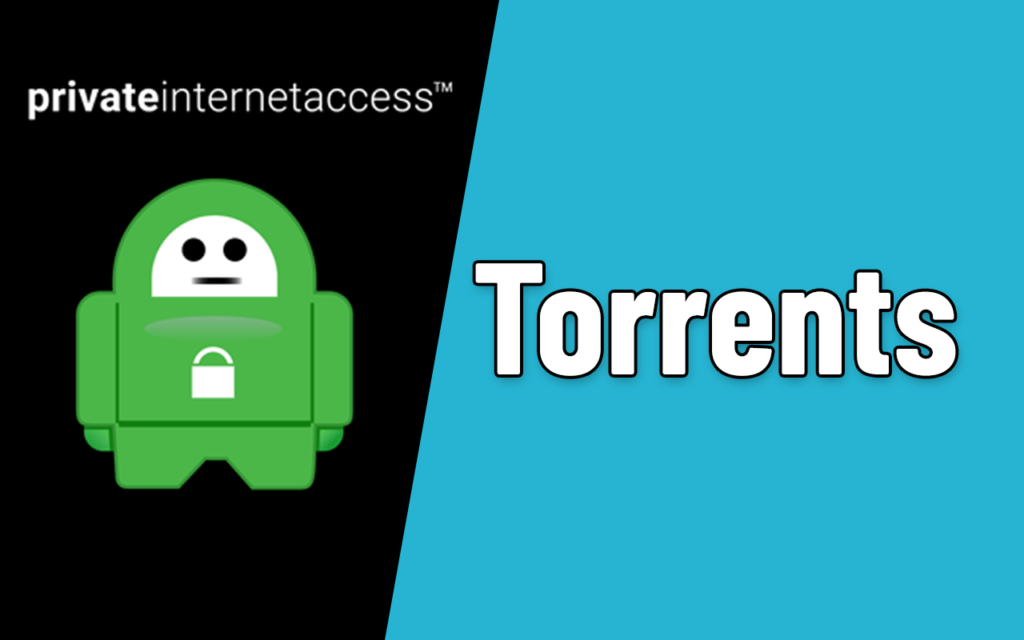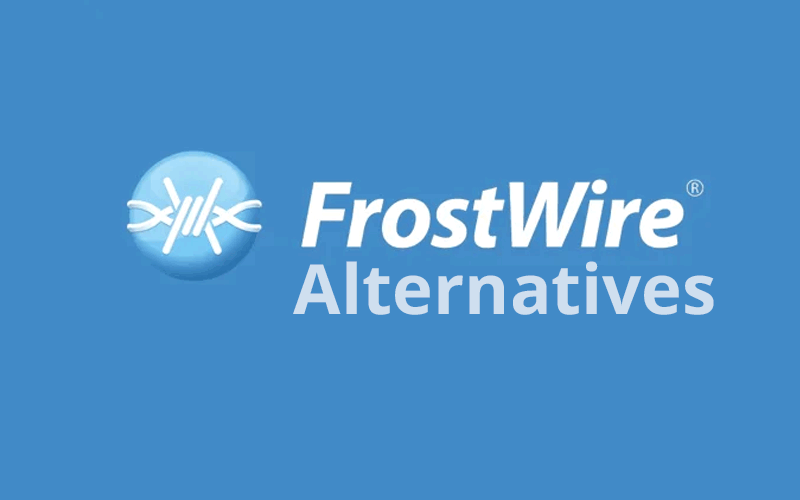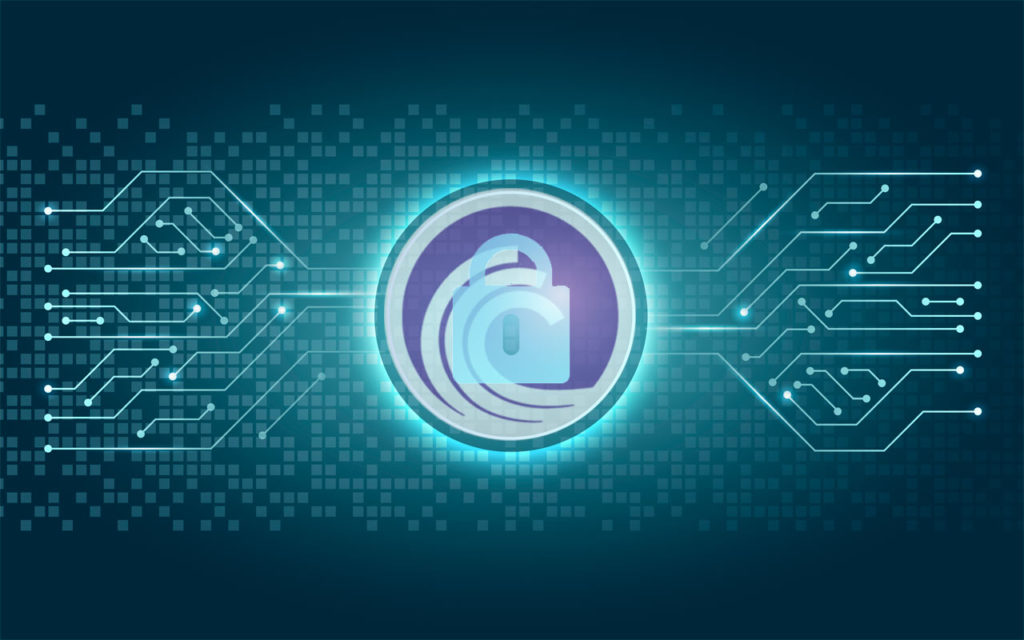If you’re looking to download torrents anonymously, the tools you use a make a big difference. And the biggest question we get is which offers more protection, a VPN or Proxy?
In many ways they’re quite similar (route your traffic through a 3rd-party server, hiding your IP address). But there are several key differences that may lead you to choose one over the other. And some very cautious people to use both together for maximum privacy.
Important Note: Fortunately, you don’t have to pay extra or choose between one or the other. Several torrent-friendly VPNs include zero-log proxy service at no additional charge. You can even use both simultaneously!
VPNs that include Socks5 Proxy access: Our top picks are Private Internet Access and NordVPN (Special 72% discount)
Quick Intro to your 3 Options
Before we dive in to the details, here’s a brief overview of the 3 torrent privacy tools, and the relative strengths/weaknesses of each:
PeerBlock/iBlocklist/Other IP blockers
Torrent IP blocklists attempt to do one thing. Prevent connections from certain ‘undesirable’ IP addresses or IP ranges. The theory is that if you can identify ‘suspicious’ IP’s, you can block them and minimize your risk of having your torrent downloads monitored.
In reality, it’s literally impossible to identify and block every IP address that might be malicous. And any professional torrent monitoring service can get new IP’s as easy as you can. Meanwhile, blocklists are made up mostly of good/harmless peers which will cause you slower speeds and reduced availability.
Verdict: Blocklists might be better than nothing (barely) but it’s not a really a privacy tool. And it does nothing to anonymize your torrent downloads.
Proxy / Socks5 Torrent Proxy
A proxy connection is one that routes your traffic from a specific app/program (your torrent client) through a 3rd party server. The proxy server connects to all torrent peers on your behalf. The main benefit is peers will only see the IP address of the proxy server. Your ‘real’ IP address will remain hidden.
The best/most-secure proxy type for torrenting is Socks5 (don’t use HTTP proxies).
A proxy allows your Torrent IP address to be different than the IP for all other internet traffic (good). Unfortunately, most torrents don’t encrypt their traffic, so your ISP could still monitor your downloads if they wanted to.
Verdict: A proxy is like a VPN without encryption. It’s also slightly faster. It will hide your IP address (the most important privacy feature). Your ISP can still see that you’re torrenting (through Deep Packet Inspection), so frequent torrent downloaders may prefer a VPN.
Recommended Socks5 Providers: Private Internet Access, NordVPN, IPVanish, Torguard. Read our complete Torrent Proxy Guide.
VPN / Virtual Private Network
A Virtual Private Network routes ALL of your internet traffic through a remote server, which interacts with the internet (and torrent peers) on your behalf. All communication between your device and the VPN server is encrypted with incredibly strong encryption.
A VPN give you the highest level of protection & privacy for your torrents. It accomplishes two important things:
- Hide your real IP address from torrent peers (they see the VPN server’s IP).
- Encrypt all internet activity so your internet provider (ISP) can’t see what you do/download online.
Many of the top torrent-friendly VPNs also include SOCKS5 proxy service with your subscription. So you can use both simultaneously, changing your IP address twice and keeping a local IP address for web browsing, but downloading torrents from a torrent-friendly location like the Netherlands.
Torrent IP Blocklists (Peerguard, iBlocklist, etc…)
A torrent IP blocklist is simply a giant database of IP addresses that you tell your torrent client (uTorrent, Vuze…) not to connect to. There many different blocklists, and IP’s tend to get included in a blocklist for a variety of reasons:
- Non-Residential IP address
- Schools/Universities
- Known torrent monitoring companies
- ‘Suspicious’ activity from an IP address
What is a Blocklist?
The idea behind torrent blocklists is if you can create a list of all the ‘BAD’ IP addresses, then you can only connect to ‘safe’ peers.
Any connection from a ‘blocked’ peer will be refused, and they won’t be able to connect to you to download/seed torrent files.
This all sounds great (because several blocklists are free) but there are MANY security issues that make a blocklists nearly worthless…
Why Torrent Blocklists don’t work…
There are many reasons we hate (and never recommend) blocklists. Here are the most important ones:
- Block way too many peers (mostly safe IP’s)
- Bad peers can still use an unblocked IP address
- Torrents can be monitored via DHT or tracker lists, even by blocked IP’s
1. Too many blocked IP addresses
Let’s be honest, most torrent peers aren’t threats. They don’t want to infect you, monitor you, or hack you. They just want to share torrent files freely.
But the top torrent blocklists contain MILLIONS of IP addresses. Are all these peers all dangerous?
Of course not.
It’s kind of like firing a machine gun blindfolded. You might get the bad guy, but there will be alot of collateral damage. And every ‘good’ peer you block will reduce your number of available peers, your speeds, and your download times.
If you combined all the blocklists, you’d block over 30% of all the IPv4 addresses in the world.
2. Bad Peers will just use a new ‘SAFE’ IP address
It’s incredibly easy to get a new IP address. You can use a commercial VPN service or proxy to switch IP’s in 5 seconds. Any individual/person that makes a living from monitoring torrent downloads will have a never-ending supply of unblocked IP’s to continue their business operations.
Even if you use a blocklist that blocks all commercial VPN/proxy servers, they could just use a residential IP address by running a home VPN/proxy server on a $100 router, or run the monitoring software from a residential address.
3. Blocked peers can still see the IP’s of downloaders
In order to connect to torrent peers, you need to know their IP address. That’ show the whole p2p system works. These IP’s are collected and shared via torrent trackers as well as DHT (trackerless peer lists). And anybody can see these peer lists, whether their IP is blocked or not.
TLDR; a blocklist WILL NOT prevent bad peers from seeing your torrent IP address and the files you’re downloading. Torrent trackers have that data already. The only good solution is to use a technology that actually hides your IP address (VPN or proxy).
Virtual Private Network/VPN (best for most users)
A VPN is the ultimate torrent privacy tool. You’ll see them recommended across all the top tech sites, from Lifehacker, to Reddit, and even torrent sites themselves.
Why?
A VPN is simply the best tool for the job (and really easy to use).
This section will discuss how a VPN works, what it’ll do for you, and how to choose the best one for torrents. Choosing the right VPN is extremely important, as there are many that aren’t torrent-friendly, even some that are outright scams.
Private Internet Access and IPVanish are two of the best and most reputable options. We’ll discuss others as well.
How a VPN makes your torrent downloads (WAY) more secure
There are two main ways that torrent downloads are monitored:
- Gathering IP addresses from a torrent swarm (can be done by any 3rd party)
- Directly inspecting your internet traffic (your ISP or network admin can do this)
A high-quality VPN can protect against both these threat vectors, for as little as $3.33/month.
A VPN protects your torrent privacy by doing two things:
- Hide your ‘real’ IP address and replace it with the IP of the VPN server in torrent swarms.
- Encrypt 100% of your internet traffic, so even your internet provider (ISP) can’t monitor your traffic or see what files you’re downloading.
It sounds simple (and it is really easy to use). But it’s also incredibly powerful. Which is why VPN usage is growing exponentially, especially in the file-sharing community.
Choosing the ‘BEST’ VPN for torrents
At a basic level, most VPN services are very similar. They will route your traffic through a 3rd-party server, assign you a new IP address, and encrypt all the data you transfer between your device and the VPN server. But that doesn’t mean you should just use any VPN when torrenting.
There are still very important differences between standard VPN services, and ones that are ideal for torrenting.
Here’s some of the most important things to consider:
Logging Policy
Most VPNs keep logs. This means they keep a record of your connection history, IP address assigned, server location, etc. Some even keep records of websites you visit or other traffic logs.
If a VPN keeps IP address logs (with timestamps), then there is a clear link between your torrent ip address (assigned by the VPN) and your real IP address. If you’re serious about privacy, you should choose a VPN that doesn’t keep any logs at all.
Some of our favorite zero-log VPNs are:
- Private Internet Access (Logging policy actually tested in court by the FBI)
- NordVPN
- IPVanish
Speed
No matter what you’re doing online, you want to get the speed you’re paying for. If you pay for a 20mbps internet connection, you want to get most of that speed when connected to a VPN service. But servers and bandwidth are expensive, so many of the ‘cheap’ and ‘lifetime’ VPN services are incredibly slow.
There are a zero-log VPN services that are also quite fast, and we’ve tested PIA, Torguard, and IPVanish at speeds above 50mbps.
Other Features
Many VPNs also include other features like a kill-switch/IP leak protection, Socks5 proxies, and p2p-optimized servers that make them even better for torrent users. For more info, read our complete torrent VPN guide below…
Read Next: The ultimate list of the best VPNs for Torrents/P2P
How to use a VPN for torrenting
The beauty of a VPN is it’s simplicity. While the actual technology is incredibly complex, the user experience is simple.
Just follow these steps to get up and running the 1st time.
- Sign up for a VPN
- Download/Install the VPN software/app
- Run the App
- Choose a server location (we recommend Switzerland/Canada/Netherlands)
- Click Connect (The VPN will switch your IP and encrypt your data automatically).
- Torrent.
What a VPN looks like for users:
It’s basically just an App you run on your computer. Choose any server location you want:
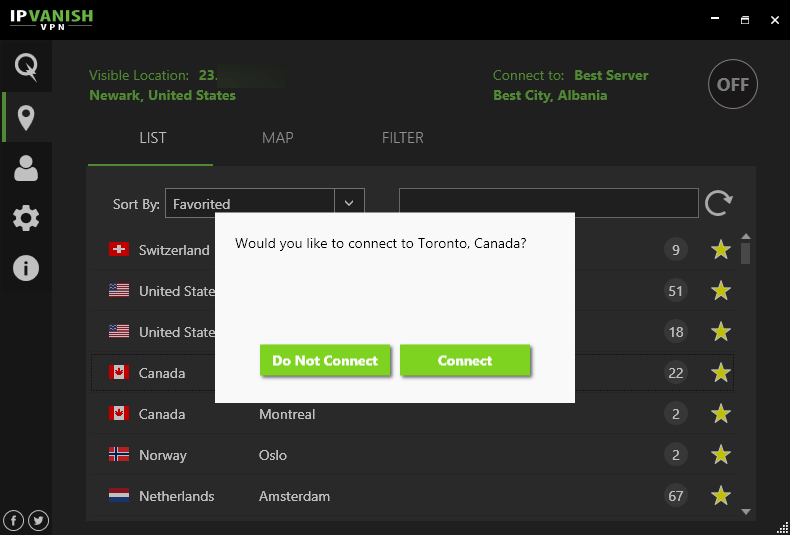
In 5-15 seconds, you’ll be connected to your preferred location. Your new IP address will be shown in the top left corner of the software (with IPVanish) and all communications will be encrypted with 256-bit encryption (basically unbreakable).
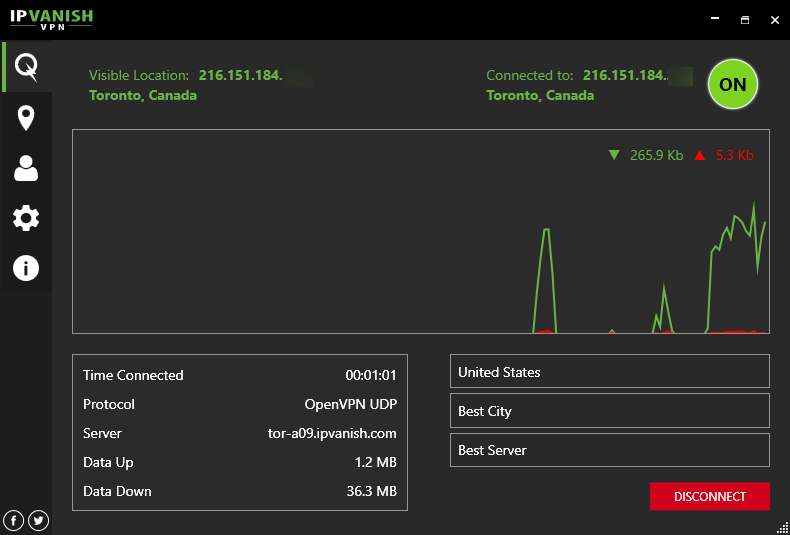
That’s it. You can now torrent as normal. It’s usually a good option to turn on the kill-switch if your VPN software has one. You should also verify that your torrent identity as anonymous by using an IP tracking torrent.
Disadvantages of using a VPN for torrents
While a VPN is the best tool for the job, there are still some drawbacks/tradeoffs to be aware of:
- Connecting to a distant server will result in slower speeds
- Encryption uses bandwidth/computing power (slower speeds again)
- Your torrent IP and web browser IP will be the same
Slight Speed decrease:
A high-quality VPN will have plenty of available server bandwidth and speeds should still be quite fast, but don’t expect to get 100% of your ISP connection. For example, if you pay for 25mbps speeds, you will probably only get 10-20mbps while connected to the VPN, depending on the encryption strength you use and how far away (or crowded) the VPN server is.
Privacy and security have tradeoffs, and you’ll have to sacrifice a bit of speed.
Same IP address for web browser and torrents
This isn’t a major negative, but it’s something to be aware of. People usually use a VPN server in a torrent-friendly country like Switzerland or the Netherlands. But now your web browser will use that IP location as well, meaning you may get foreign google results (though you can change Google’s settings to always show results from your preferred location).
If you prefer to have a separate IP address for your browser and torrents, you can add a proxy inside the torrent client, while staying connected to a local VPN server. This will give you a local (same country) IP address for most web activities, and change your torrent IP to wherever the torrent proxy server is located (usually Netherlands).
Socks5 Proxy
The 2nd best option for anonymous torrents is a proxy. Instead routing 100% of your internet traffic through a 3rd-party server, the proxy will be configured only inside your torrent client.
Nearly all desktop torrent clients support proxy connections (SOCKS5 only). Also, 2 android torrent apps (Flud and tTorrent) also support anonymous proxy connections.
Key Proxy Info:
- Changes the IP address for 1 app (torrent client)
- Needs to be Socks5 proxy to work properly w/ torrent peers (never use HTTP proxy)
- Hides you’re real IP address from torrent peers but doesn’t encrypt data
- Some torrent clients route proxied connections insecurely
How a torrent proxy works
When properly configured, your torrent client will route all peer and tracker communications through the SOCKS5 proxy server. Torrent peers and trackers will only see the IP address assigned by the proxy server, not your real IP.
Proxies typically don’t have built-in encryption, meaning the data will still be readable by your ISP. This usually isn’t an issue (since they don’t actively monitor the content of downloads). However, some ISP’s block/throttle torrent traffic. In this case, you should either use a VPN or turn on your torrent client’s built-in encryption.
SOCKS vs. HTTP/HTTPS
The best proxy type for torrents is a SOCKS version 5 (SOCKS5) proxy. This is a multi-function proxy protocol that can handle tracker and peer connections. You should never use an HTTP proxy (the most common type of ‘free’ proxy).
The reason you should never use HTTP proxies: HTTP proxies only can transport HTTP traffic. They can handle things like tracker connections (which use HTTP). But they can’t handle peer connections. This is because peer connections use TCP, which is a different protocol. If you try to use an HTTP proxy, most torrent clients will just ignore the proxy settings when connecting to peers. This means peers will see your REAL ip address which is a major privacy risk (and defeats the the entire purpose of using a proxy).
Even if your torrent client doesn’t route HTTP proxy connections insecurely, you still won’t actually be able to connect to peers (because the HTTP protocol doesn’t work for torrent downloads).
Summary: NEVER use a HTTP proxy for torrenting. Always use SOCKS5. Check out our summary of the best socks5 providers below.
Best Zero-Log Socks5 Proxy services
These are our favorite anonymous Socks5 proxy services for torrenting. All of them are true zero-log services, meaning they don’t log your activity or keep records of your IP address assignments.
And the best part…
Most of these proxy subscriptions also include VPN service at no additional charge (Torguard is the only exception).
#1 – IPVanish Proxy/VPN (Fastest option)
IPVanish is a zero-log VPN/Socks5 provider based in the USA. They keep no logs whatsoever and have a reputation for excellent software and incredibly fast speeds. If you have a 50mbps+ internet connection and want to keep most of your speed while connected to a VPN, then go with IPvanish.
Full Review: Read our complete IPVanish review for speedtests, software overview, and setup guide.
All subscriptions include both VPN & proxy service (for the same price). IPVanish’s proxy server is based in the Netherlands and doesn’t log IP addresses. It works great with all major torrent clients. We even have a dedicated setup guide for using the IPVanish socks5 proxy for torrents.
#2 – NordVPN Socks5/VPN
NordVPN is one of the best all-around VPNs in the world. All subscriptions include both VPN & proxy service (more than 20 Socks5 server locations).
They’re a true zero-log VPN based in Panama (a privacy haven). And you’ll be thrilled to learn that NordVPN is one of the last VPN’s in the world that still works with Netflix. In fact you can unblock more than 50 video streaming services including Hulu, HBOgo, MLBtv and more!
SPECIAL OFFER: Save 72% when you buy a 2 year subscription of NordVPN
NordVPN For Torrenting:
NordVPN has p2p/torrent-optimized servers in more than 10 countries. They also have torrent-friendly SOCKS5 servers in more than 10 countries. You can have up to 6 simultaneously connected devices with NordVPN, allowing you to protect all your devices on 1 subscription.
Full Review: Read our NordVPN review for more info about their software, speed, and SmartPlay technology.
#3 – Private Internet Access VPN/Socks5 ($40/year)
Private Internet Access basically invented the zero-log VPN category, and they’re still one of the most torrent-friendly vpn/proxy companies in the world. They’re also incredibly cheap with 1-year subscriptions costing a mere $3.33/month.
Verdict: Proxy vs. VPN vs. Blocklist/Peerblock
In the end, the tool you use to anonymize your torrents will be a personal decision. If speed is most important (and security less so) then go with a proxy. If you value greater security and/or ease of use, then go with a VPN.
And remember, blocklists like peerguardian/peerblock are nothing more than a bandaid solution. They don’t offer real privacy, and usually just give users a false sense of security. Any serious torrent downloader will tell you that a VPN/Seedbox/proxy is the only real option for serious privacy.
Peerblock/PeerGuardian/Blocklists
- List of IP addresses to block
- Like carpet-bombing, rather than precision targeting
- Doesn’t encrypt torrent traffic or change your IP address
- Dangerous blocked peers can easily get unblocked by getting a new IP address
Proxy Summary
- Always use a SOCKS5 proxy (HTTP proxies route torrent traffic insecurely)
- Manually Configured inside your torrent client.
- No built-in encryption but you can use your torrent client’s built-in encryption (will reduce available peers).
- Cost around $4-6/month.
And remember, you can always use a proxy and VPN simultaneously for extremely secure torrent downloads. The main tradeoff with this setup is speed, but not price. Many VPN services include Socks5 proxy access at no additional charge.
VPN Summary
- Easily installed on most devices as software/app
- Many server locations (some VPNs have 100+)
- Strong encryption prevents your internet provider from monitoring your internet usage
- Will slow your connection slightly (because of encryption and server distance)
- Cost: $3.33+ per month
Next step: Choose one of our top-rated Torrent VPN companies and start torrenting securely in under 10 minutes.

